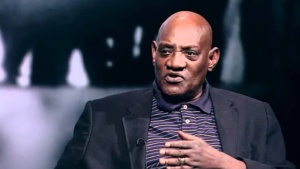By Osei Akoto – The passing of journalist, activist and publisher Darcus Howe is devastating news to people all over the world. He spent his life highlighting the black struggle in Britain and working to make the world a peaceful and more diverse place.

These kinds of views are seen as radical to many but were told in a thought provoking and insightful way meaning they were able to be discussed in the mainstream. Howe was said
to have passed away peacefully in his sleep at his home in Streatham last Saturday.
Leighton Rhett Radford “Darcus” Howe was born on 26th February 1943 in Moruga, Trinidad. His mother was a teacher and his father was an Anglican priest. Howe was schooled in Port of Spain at Queen’s Royal College before moving to England when he was 18 years old with an ambition to study law but became more involved with journalism instead.
In 1969 he returned to Trinidad and was inspired by his parents and uncle (famous historian, journalist and socialist C. L. R James) to use his skills as a journalist to enter the world of political activism.
Howe came back to England a year later and began to serve as editor of the Brixton based political magazine Race Today. He also became a member of the British Black Panther
Movement and started work at the well-known Caribbean restaurant The Mangrove, The Mangrove was known as the heart of Notting Hill’s huge West Indian community. During this time the restaurant was constantly raided by the police, (12 times between January
1969 and July 1970) on the premise that it was a drugs den. This was clearly racially motivated since no evidence was seen in any of the raids. Howe urged Frank Crichlow, the restaurants owner, to take action leading to a 150 person protest on 9th March 1970. The protesters marched to local police stations to protest. The police responded to the march by dispatching around 700 officers. A combination of anger from the protestors and unnecessary forcefulness by the police meant that the protest quickly escalated and became violent. Documents from Home Office showed that this was a deliberate strategy
used to target and terminate the growing black power movement.
Six weeks later, Circhlow, Howe and seven others were arrested for riot, affray and assault. The arrested protestors gained a lot of attention from this clear breach of justice, the
group became known as the Mangrove Nine and their trail became known as Britain’s most influential black power trial.
They had prior knowledge on how the law works, Howe and Althea Jones Lecointe (one of the Nine) defended themselves. In doing so they aimed to expose the political nature of the trial and highlight how racist the Notting Hill police were. They succeeded in their aims and got the judge to acknowledge the racial hatred in the Metropolitan Police Service. This
was the first time a British judge has done this.
After the Mangrove incident, Darcus Howe went on to become one of the UK’s most well known civil rights activists and always remained vocal about current issues at the time such as the Mark Duggan incident and the London riots. He also used his talent as a broadcaster to change the way black people are viewed and how we view ourselves. He was an inspiration to many and will be missed.











Very interesting
Comments are closed.